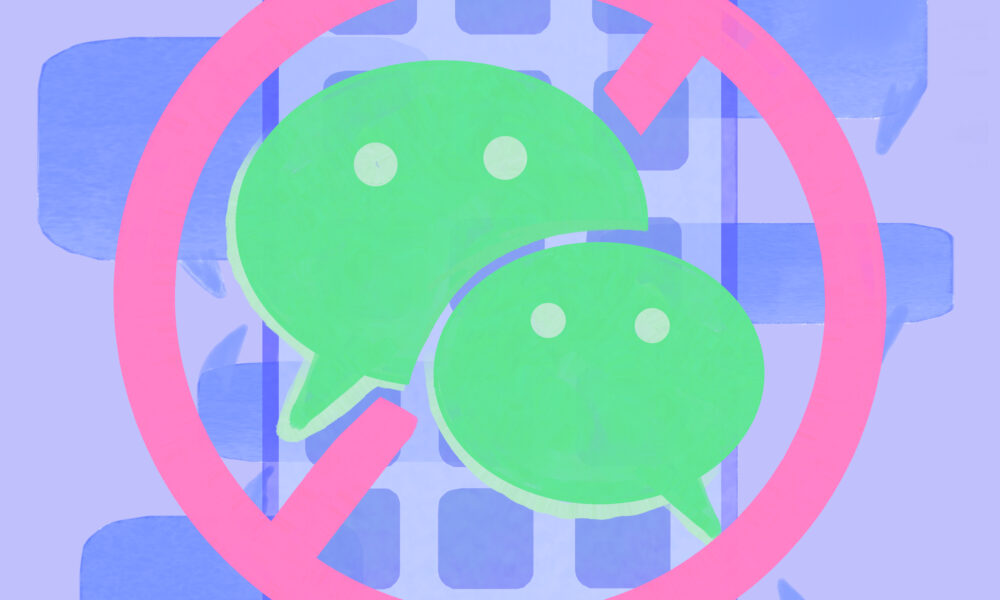On Oct. 16, McGill announced a ban on the installation and use of the application WeChat on McGill-owned and managed devices, effective immediately. WeChat is an instant messaging and social media app developed by Chinese company Tencent, with an estimated 1 billion monthly users.
What does this policy mean?
People will no longer be able to install or use WeChat on McGill-issued devices, including desktop and laptop computers, mobile phones, tablets, and research-funded devices. The directive also states that the application must be uninstalled from all McGill devices that currently have it.
Why has this policy been introduced?
McGill made its announcement in compliance with the Quebec government’s recent directive introduced Nov. 3. The Act respecting the governance and management of the information resources of public bodies and government enterprises banned the use and installation of WeChat at all government and public institutions, which includes McGill.
Previously, the Canadian government banned WeChat on Oct. 30, with Treasury Board President Anita Anand, who oversees public administration, stating that WeChat “present[ed] an unacceptable level of risk to privacy and security.” This, however, did not require McGill to enact an immediate ban of the app, as the legislation focused exclusively on government devices. The introduction of legislation by the Quebec government, which broadened the scope of this restriction, caused McGill to enact such a directive.
The Canadian government also banned TikTok in February on government and public-sector devices over similar security concerns. Prime Minister Justin Trudeau called this move “a first step […] to be making sure that we’re keeping Canadians safe.” McGill has also followed this ban by forbidding TikTok on university-managed devices in February of this year, again obligated by the introduction of Quebec legislation.
Daniel Béland, Director of the McGill Institute for the Study of Canada, pointed out in an email to The Tribune that this ban comes as a result of increasingly fraught point in Chinese-Canadian relations. He explicitly spoke to the souring of the relationship due to the Meng Wanzhou extradition dispute and the detention of two Canadian citizens, Michael Spavor and Michael Kovrig.
“Protecting government information is a key priority, and other jurisdictions, including the European Union and the United States, have recently adopted similar bans on TikTok,” Béland explained. “This is an international trend, and Canada is not alone doing this.”
How has the McGill community reacted to this directive?
Some Chinese students, such as Qizhou Edward Huang, U3 Science, worry about the impact of the ban on Chinese students who rely on WeChat to communicate with their families.
“For those that are poor and maybe own a university device, they might have to [un]install [WeChat] and their communication with their family will be hugely impacted,” Huang said. “Now they have to, if they are using university devices, […] switch, which is a great challenge on their parents […] because these [user interfaces] are not easy to use [for older generations].”
Academics such as Béland, however, are supportive of such a move, citing the need to protect the collection and storage of users’ private data.
“This is a significant concern indeed, and McGill is, and must remain, vigilant about this,” Béland wrote.
While this directive focuses on the banning of WeChat on McGill-owned and managed devices, the use and downloading of both WeChat and TikTok is still allowed on personal devices, with no network ban currently in place.
However, McGill does caution that users should remain vigilant when using apps such as WeChat and TikTok, which can access personal information and have been accused of passing on user’s private data to the ruling Chinese Communist Party. Within the email addressed to the wider McGill community, both Marc Denoncourt, Associate Vice-Principal of IT, and Alex Aragona, Director of IT Infrastructure and Information Security, recommended that students and members of staff do not store protected and regulated university data, such as student records or passwords, on devices on which the application has been installed.








